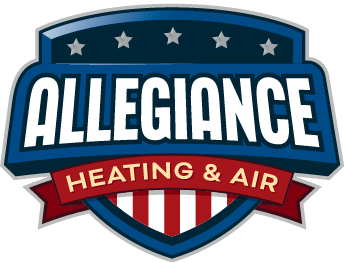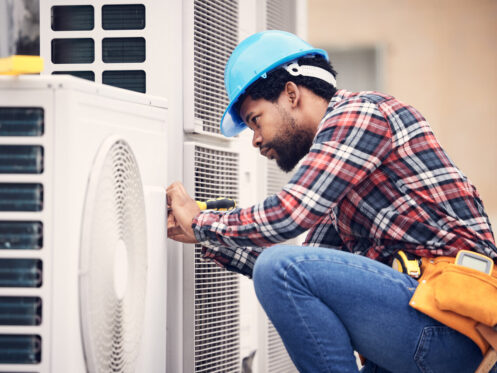Heat pump systems are essential for keeping your home comfortable throughout the year. They provide both heating and cooling, making them versatile and efficient. However, even the best-maintained systems can experience issues from time to time. Identifying problems early can prevent more serious complications and expensive repairs down the line. Understanding the common signs of malfunctions can help you take quick action to keep your heat pump running smoothly.
Common Signs of Heat Pump Malfunctions
Identifying issues early with your heat pump system can save you time and money. Here are some common signs that your heat pump may be malfunctioning.
1. Inadequate Heating or Cooling
One of the first signs of a problem is that your heat pump is not heating or cooling your home adequately. If you set the thermostat to a comfortable temperature but your home remains cold or hot, it can indicate a malfunction. This could be due to various issues like refrigerant leaks or a failing compressor.
2. Unusual Noises
If your heat pump starts making strange noises, such as grinding, banging, or squealing, it’s time to take notice. These sounds often indicate a problem with internal components such as the motor or fan. Acting quickly can prevent further damage to your system.
3. Frequent Cycling
Heat pumps typically run in cycles, but if you notice that your heat pump is turning on and off more frequently than usual, it may be an indication of a problem. This frequent cycling can result from issues like a clogged filter, thermostat problems, or low refrigerant levels.
4. Higher Energy Bills
A sudden spike in your energy bills without a change in usage habits can be a red flag. When heat pump systems in New Albany, IN, work harder to maintain a comfortable temperature, they consume more energy, leading to higher costs. An inefficient system often indicates a need for repairs or maintenance.
5. Poor Airflow
If the airflow from your vents seems weak, this could be another sign of a problem. Poor airflow can be due to clogged filters, blocked ducts, or issues with the blower. Ensuring proper airflow is important for maintaining indoor comfort and system efficiency.
When to Call a Professional Technician
Sometimes, heat pump issues go beyond simple troubleshooting. Knowing when it’s time to call a professional technician can save you from extensive damage and costly repairs.
1. Persistent Issues
If you’ve tried basic troubleshooting steps and the problem persists, it’s time to call a professional. Persistent issues like inadequate heating, constant cycling, or strange noises indicate that something more serious is wrong. Professionals have the tools and expertise to diagnose and fix complex issues.
2. Electrical Problems
Any signs of electrical problems, such as flickering lights when the heat pump is running or tripped breakers, require immediate professional attention. Electrical issues can pose a serious risk and should never be handled without proper training.
3. Water Leaks
If you notice water pooling around your heat pump, this could indicate a refrigerant leak or a problem with the condensate drain. Both issues need to be addressed by professionals to prevent further damage and maintain efficiency.
4. Unusual Smells
Sometimes, unusual smells coming from your heat pump can signify issues like mold growth or burning components. Mold can impact air quality, while burning smells suggest overheating or electrical issues. Both require immediate professional intervention.
5. Regular Maintenance Needs
While some basic maintenance tasks can be done yourself, professional technicians should handle more detailed inspections and repairs. Regular maintenance by a professional can extend the life of your system and keep it operating efficiently.
Preventative Maintenance Tips for Heat Pump Systems in New Albany, IN
Consistent maintenance is key to avoiding unexpected breakdowns and prolonging the life of your heat pump system. Implementing these preventative maintenance tips can help keep your system in top condition.
1. Regular Filter Changes
One of the simplest yet most effective maintenance tasks is regularly changing the air filters. Dirty filters restrict airflow, making your heat pump work harder and reducing efficiency. Check and replace the filters every one to three months, depending on usage.
2. Keep Outdoor Unit Clean
The outdoor unit can accumulate debris like leaves, dirt, and grass clippings. Regularly inspect the unit and clear away any obstructions. Keeping the area around the unit clean ensures proper airflow and helps the system function efficiently.
3. Schedule Bi-Annual Professional Inspections
Our professionals recommend scheduling bi-annual inspections. These inspections help identify potential issues before they become major problems and include tasks like checking refrigerant levels, cleaning coils, and inspecting electrical components.
4. Check Thermostat Settings
Ensure your thermostat settings are correct and the system is calibrated properly. A well-calibrated thermostat helps maintain consistent temperatures and reduces unnecessary load on the heat pump.
5. Inspect Ductwork
Leaky or clogged ducts can significantly reduce the efficiency of your heat pump systems in New Albany, IN. Periodically inspect your ductwork for leaks, obstruction, or signs of wear and tear. Sealing leaks and cleaning ducts can improve airflow and system performance.
Conclusion
Proper maintenance and timely action can ensure the long-lasting performance of your heat pump systems in New Albany, IN. By recognizing common signs of malfunctions like inadequate heating or unusual noises, you can address minor issues early. Knowing when to call a professional technician is crucial for handling persistent problems, electrical issues, or unusual smells safely and effectively.
For expert help with your heat pump system in New Albany, IN, contact Allegiance Heating & Air. Our skilled technicians are ready to assist you with professional maintenance and reliable repair services. Contact us today to ensure your home stays comfortable all year round!




